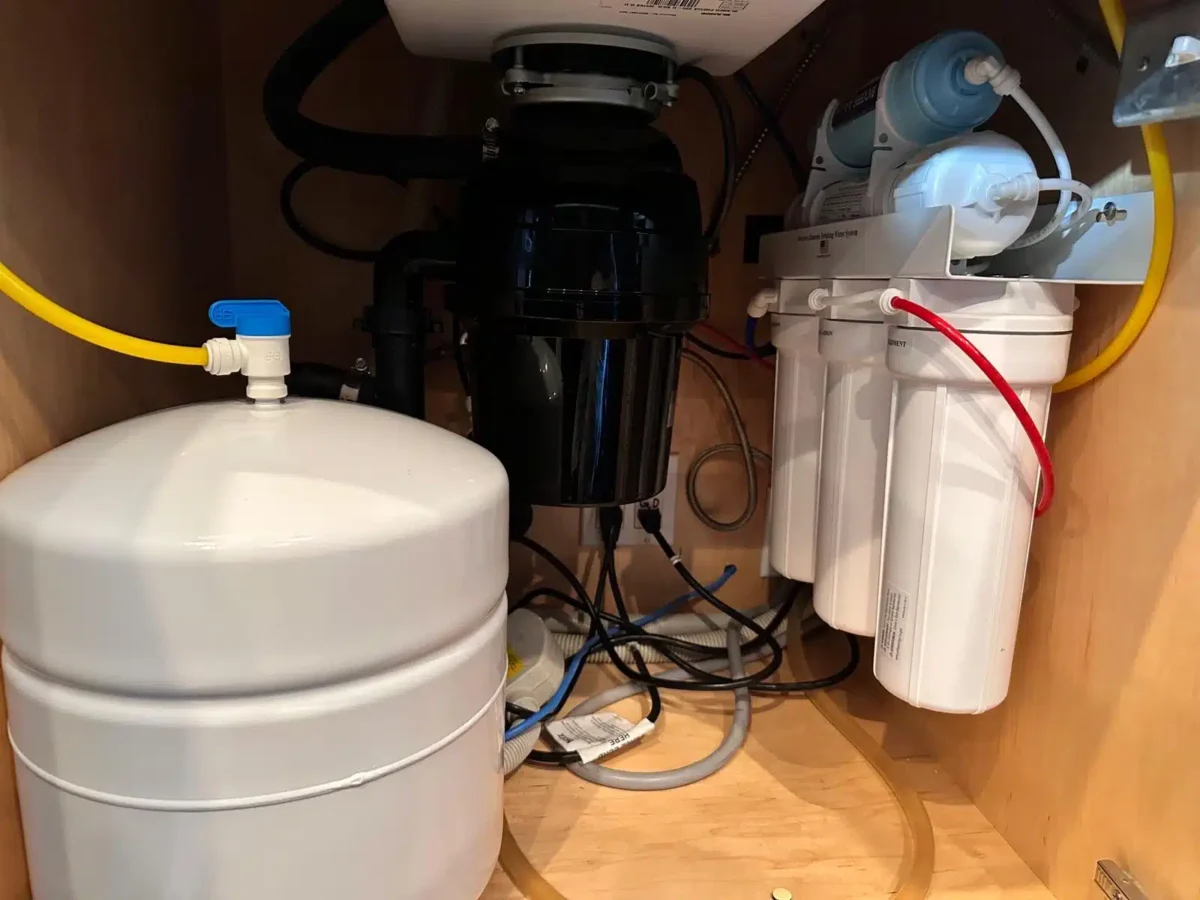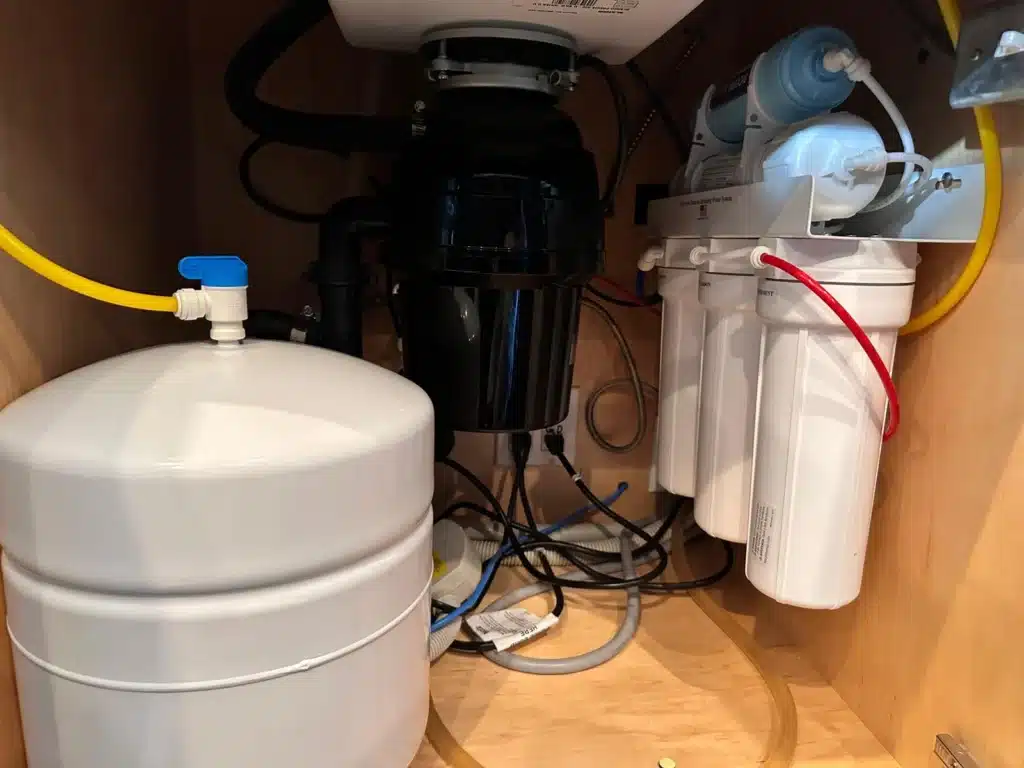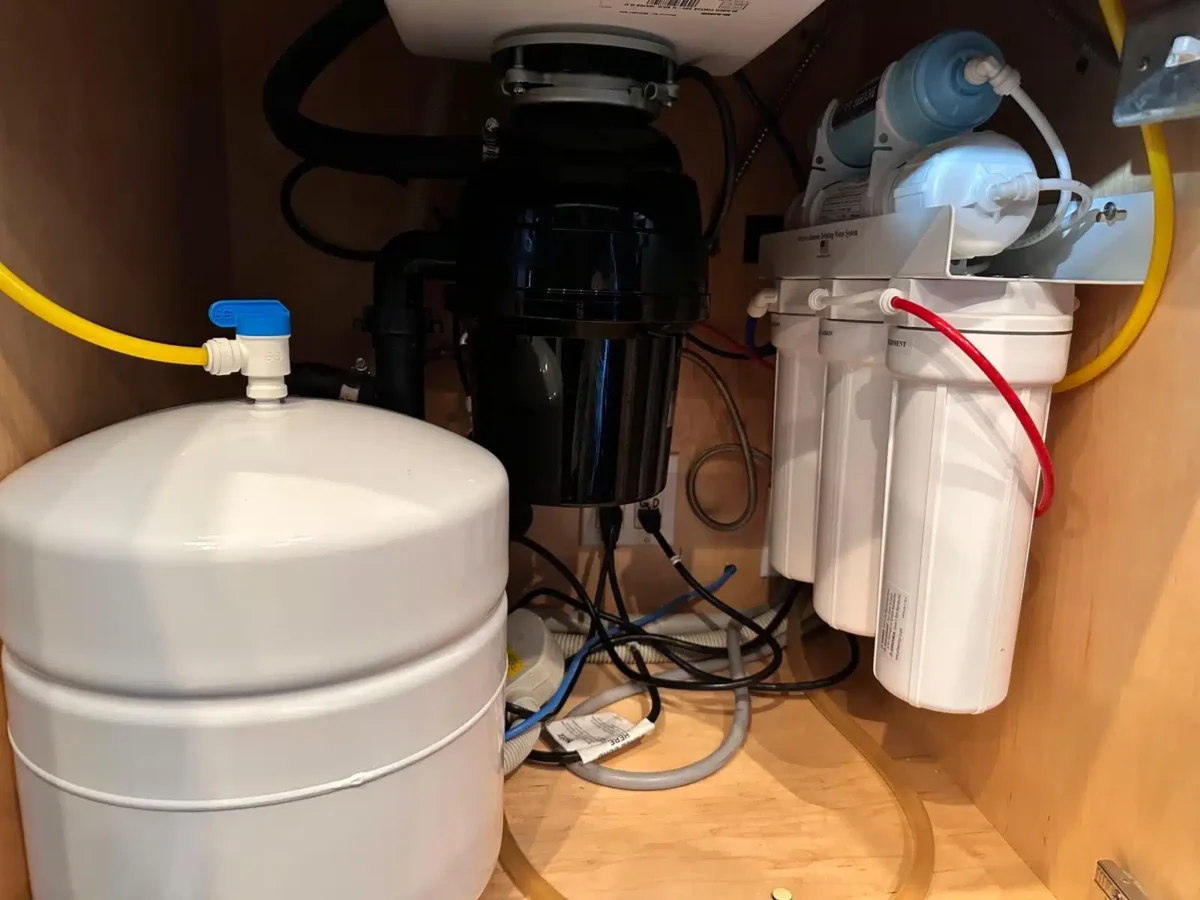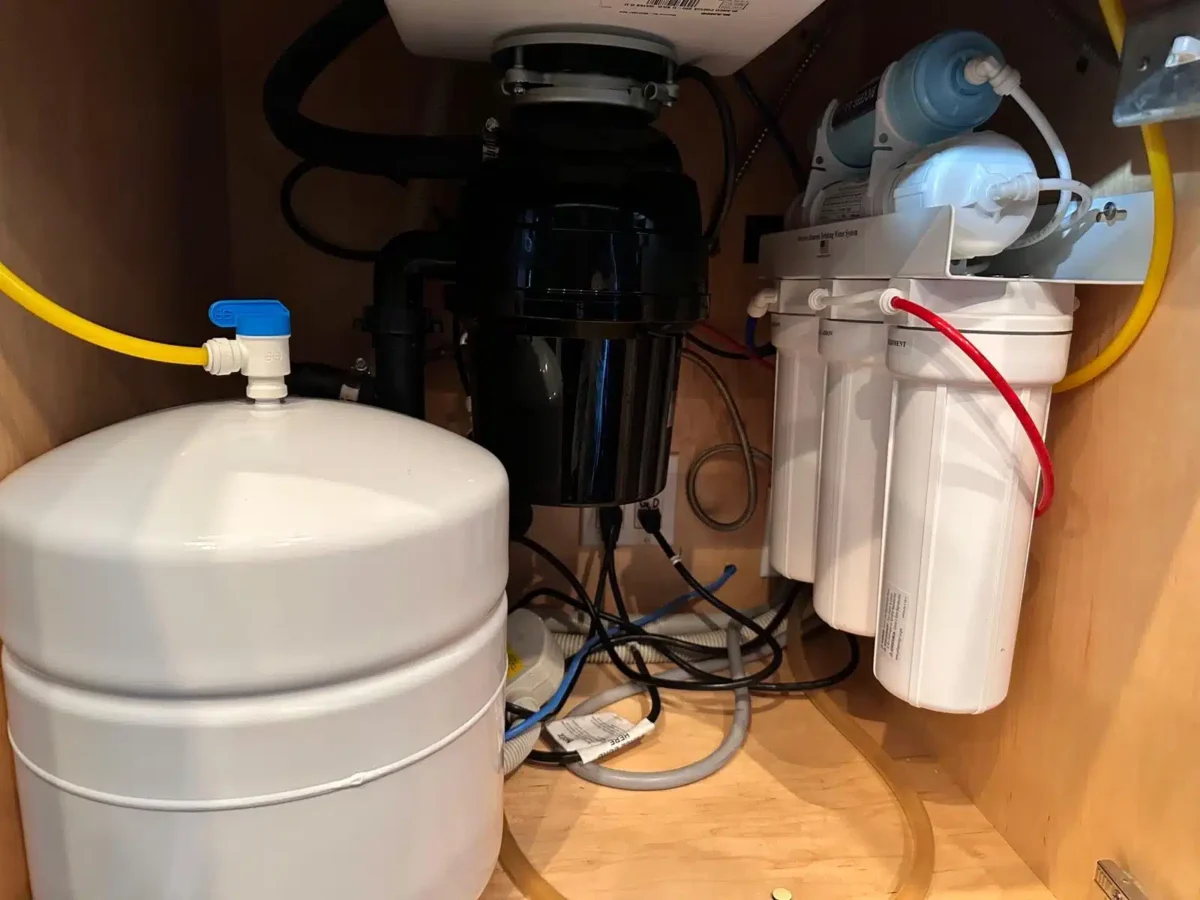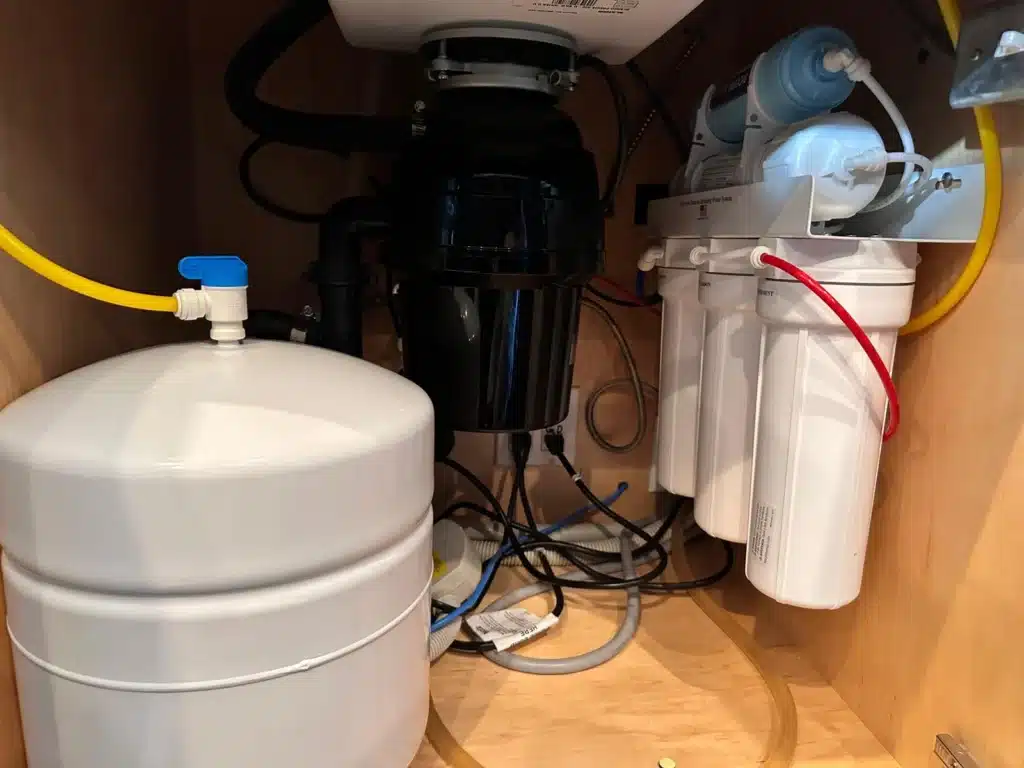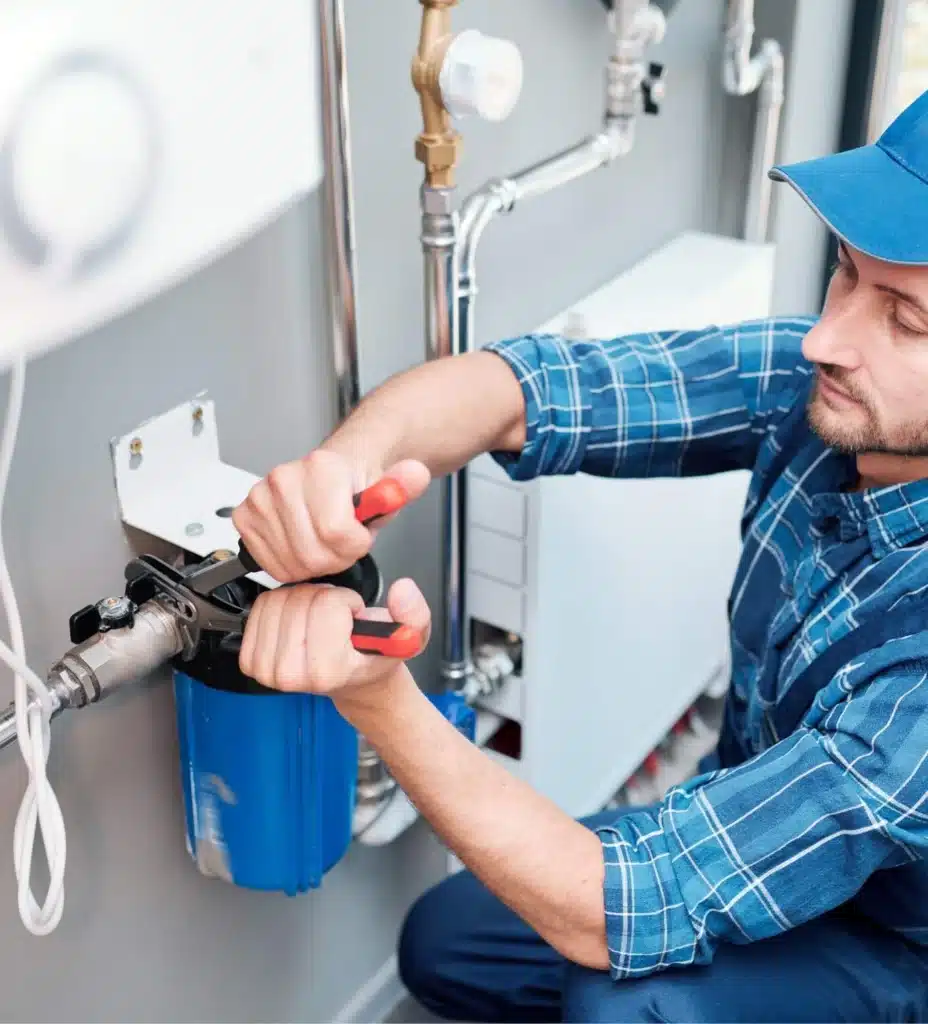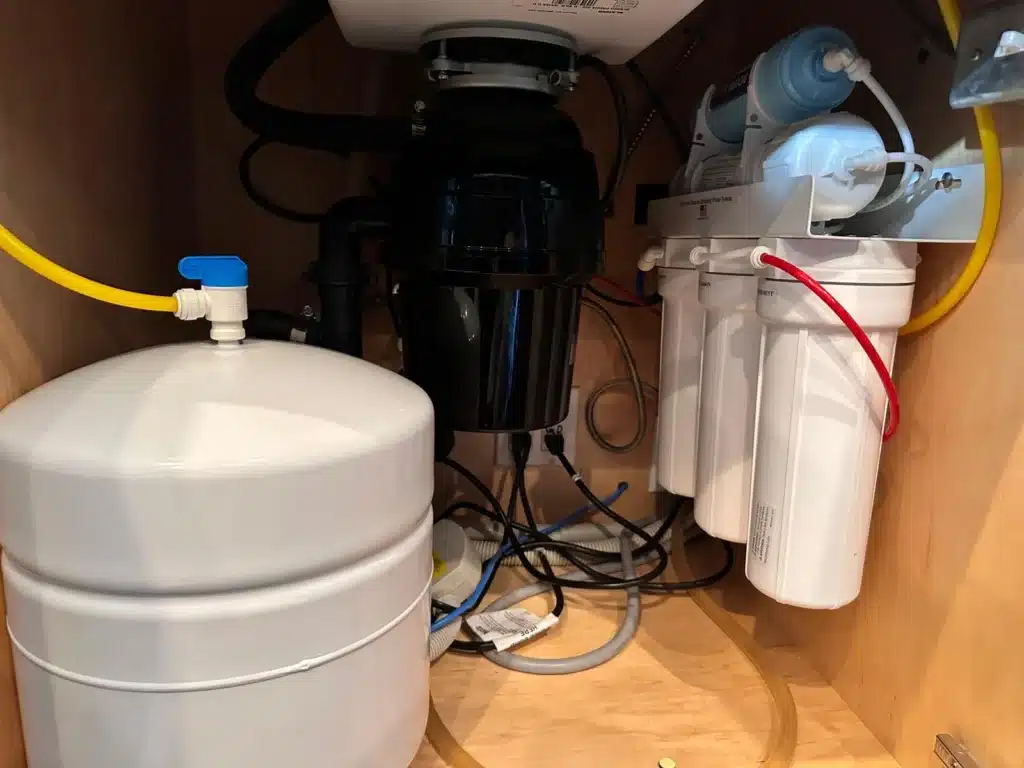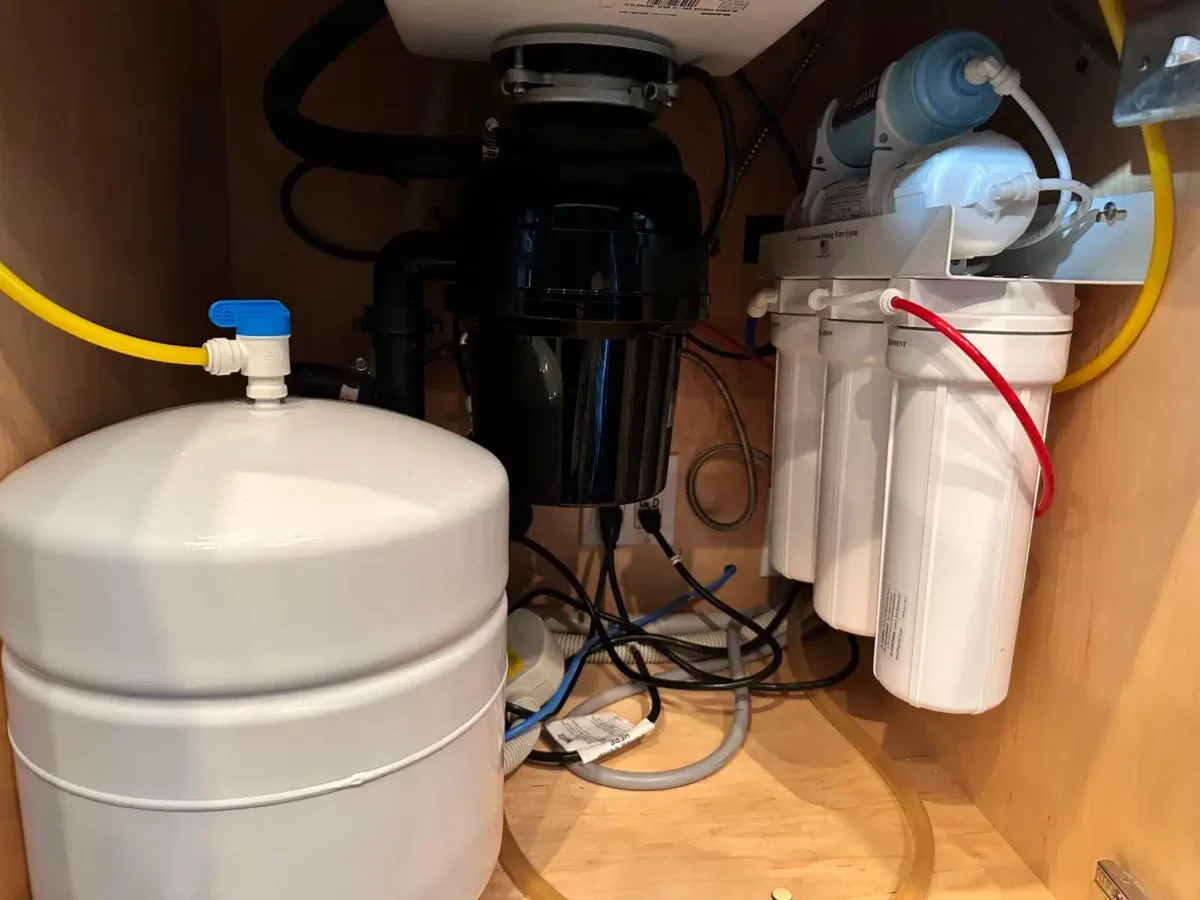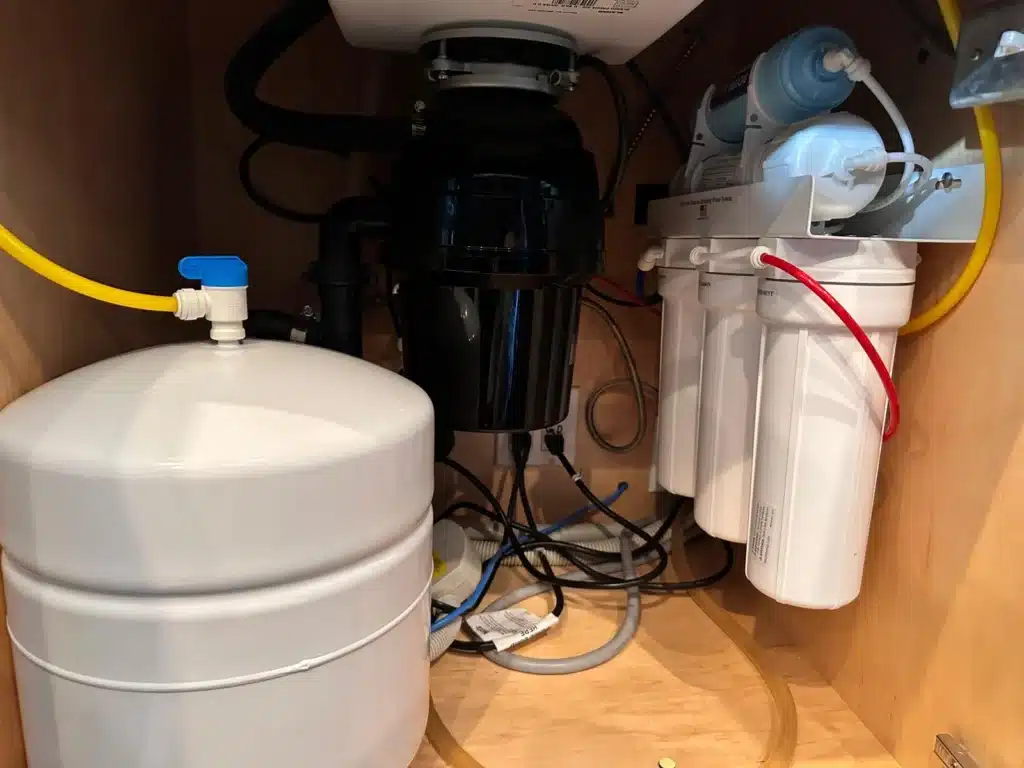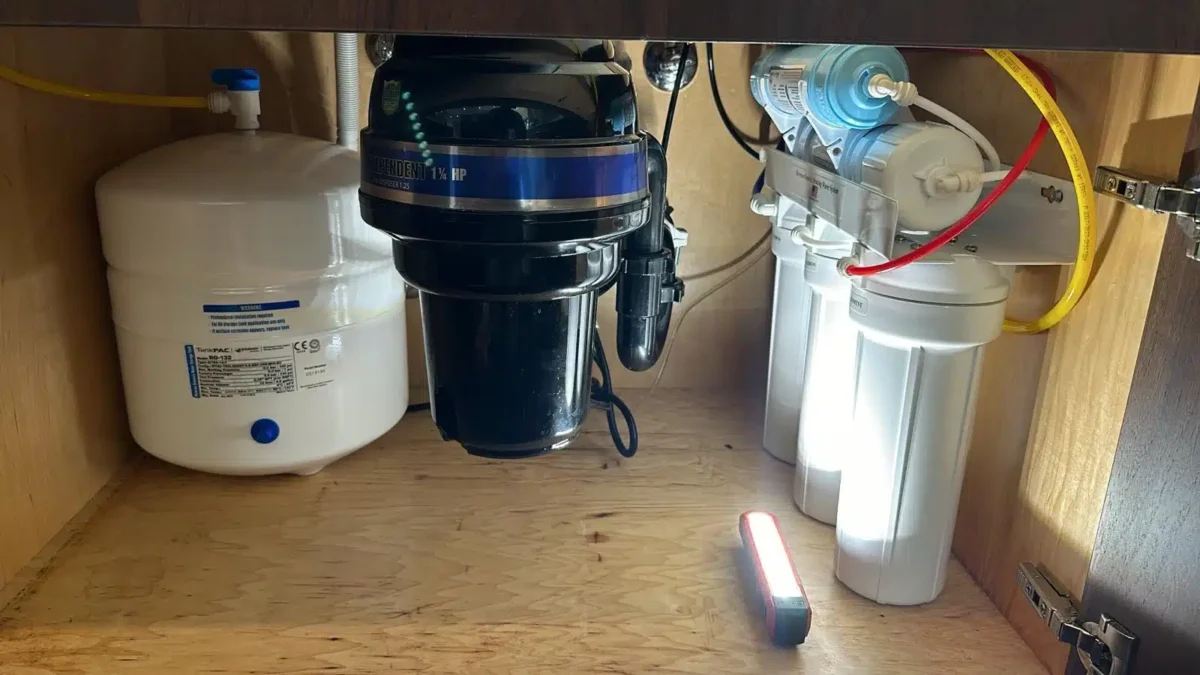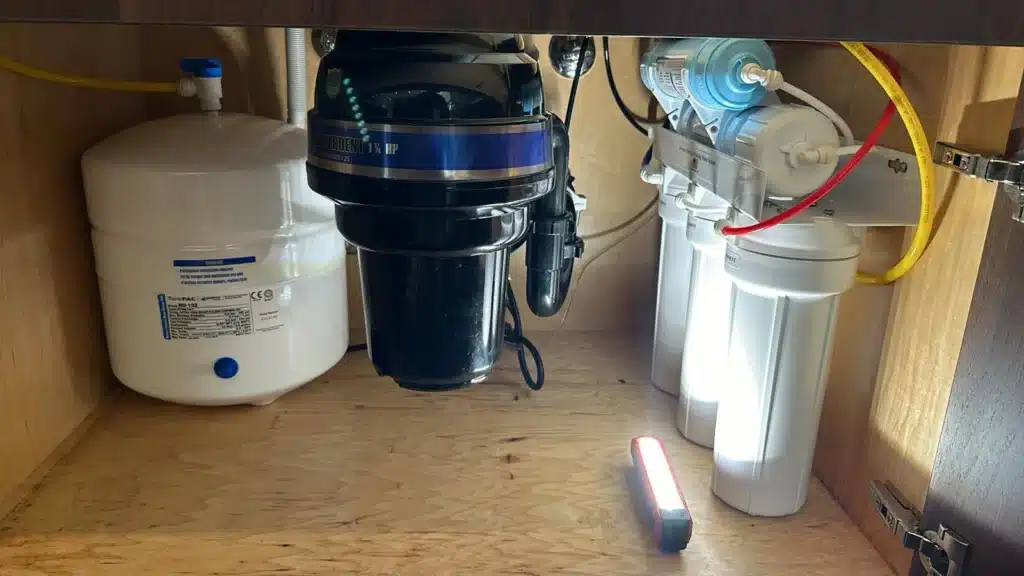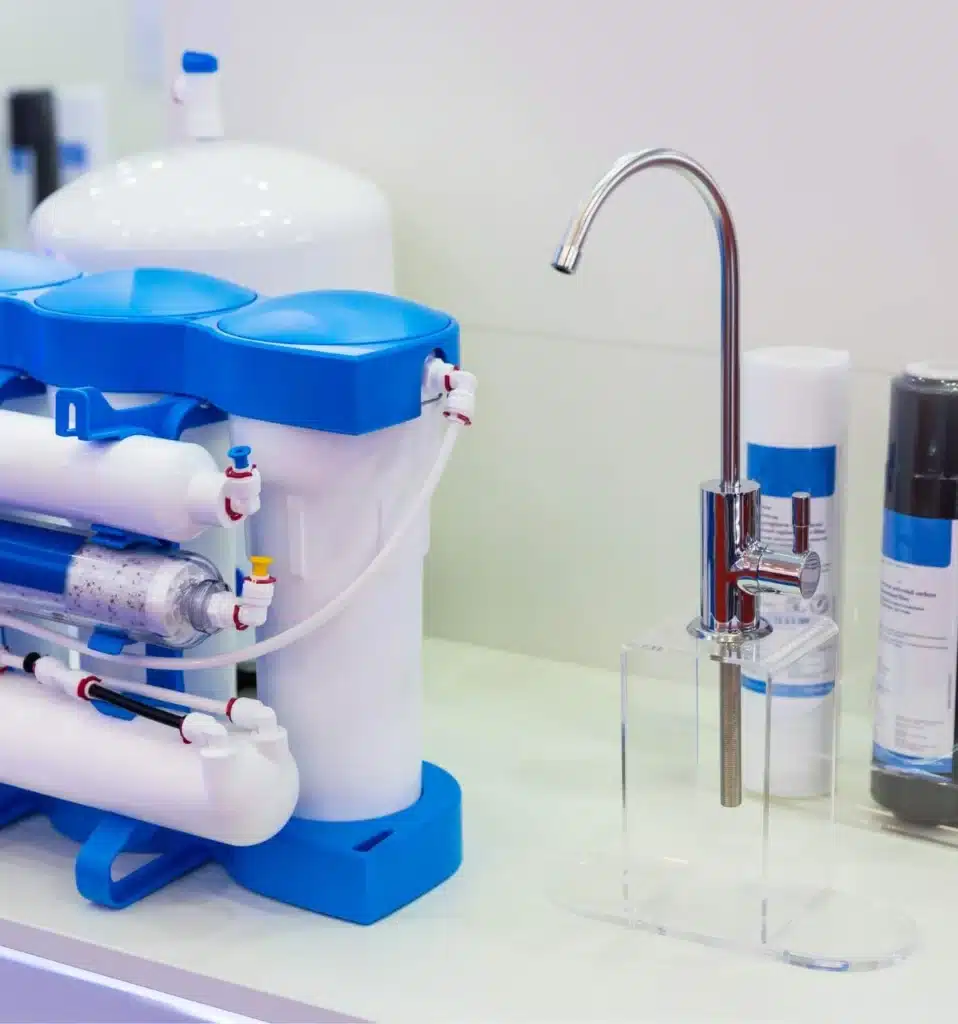Do Water Filtration Systems Require Maintenance?
pristineplumb1
on
December 20, 2024
Your water filtration system is the gatekeeper to pure, contaminant-free water—ensuring that every drop you drink is as clean and healthy as possible. However, for all its importance, water filtration maintenance is often overlooked. Like any high-functioning system, your filter needs regular attention to stay in top form.
Staying on top of maintenance is crucial, from knowing when to replace filters to understanding everyday upkeep tasks. Following a few simple tips will maximize your system’s performance and longevity without breaking the bank. With just a little effort, you can keep your water clean and your system running smoothly.
Do I Need to Service My Water Filter?
Absolutely! Servicing your water filter is essential to maintaining its effectiveness and protecting your home’s water quality. Over time, filters become clogged with contaminants, reducing their ability to provide clean water. Regular maintenance ensures your system performs optimally, extends lifespan, and safeguards your household’s health.
Whether you have a reverse osmosis system or a standard carbon filter, each type requires specific care to continue working effectively. Ignoring maintenance can lead to reduced water quality and costly repairs—making it crucial to prioritize regular servicing.
Common Water Filter Maintenance Tasks
Upkeep of the water filtration system doesn’t have to be complicated. Here are a few common tasks that should be done regularly to keep everything running smoothly:
- Replace the Filters: Most systems use cartridges or membranes that need regular replacement. Carbon filters should be replaced every 6–12 months, while reverse osmosis membranes last about 2–3 years. Skipping replacements can lead to clogs and reduced efficiency.
- Clean the System Components: Over time, housings, faucets, and storage tanks can accumulate bacteria or mineral buildup. Regular cleaning ensures these components stay hygienic and function smoothly, keeping your water fresh and clean.
- Sanitize the System: Some systems, like reverse osmosis filters, benefit from occasional sanitization. A food-safe cleaning solution every 6–12 months helps eliminate bacteria and keeps the water tasting pure.
- Check for Leaks or Wear: Inspect hoses, seals, and connections for signs of wear or leaks. Catching minor issues early can prevent water damage or costly repairs later.
- Replace Pre-Filters and Post-Filters: Systems with multiple filtration stages often require pre-filters (to remove sediment) and post-filters (to polish the water) to be replaced on schedule. This ensures that every stage of filtration is working as intended.
Refer to the manufacturer’s guidelines for specifics on your system, or consult a professional if you have a more complex setup, such as reverse osmosis. Keeping up with these tasks ensures your water filtration system works efficiently, providing clean, safe water.
How Often to Maintain Water Filtration Systems?
Regular maintenance is the key to ensuring your water filtration system provides fresh, clean water. By adhering to a maintenance routine, you improve water quality and prevent expensive repairs or replacements later. The small effort you put in now will keep your system running efficiently for years.
Frequency of Maintenance
A regular maintenance schedule is essential for reverse osmosis (RO) systems. Depending on your usage and water quality, you should replace the filters every 6-12 months. The membrane, the heart of the reverse osmosis system, typically needs replacing every 2-5 years. However, these timelines can vary depending on how much water your household uses and the quality of the incoming water. If you’re using your filter heavily, you might need to replace parts sooner.
Neglecting your system’s maintenance can reduce water quality as filters become saturated or clogged. This added strain can shorten the lifespan of your system, and worse, it could lead to contamination, affecting the entire filtration process. By sticking to a maintenance schedule, you’ll keep your system running efficiently, saving you from costly repairs or replacements.
Signs a Water Filtration System Needs Service
If you notice any of these signs, it might be time to service your water filtration system:
- Change in Taste or Odor: The filter could be saturated or contaminated if your water starts to taste or smell off.
- Reduced Water Flow: Decreased or slower water pressure may indicate a clogged filter.
- Cloudy or Discolored Water: If your water looks murky or discolored, your filtration isn’t working correctly.
- Frequent Tank Refills: The membrane might need replacing if your storage tank isn’t holding enough water.
- Unusual Noises from the System: Gurgling or strange noises could be caused by blockages or trapped air in the system.
- Leaks or Drips: If you spot water around the system, it might be due to worn-out seals or physical damage.
- Past Maintenance Due Date: Even if everything seems fine, it is crucial to follow your maintenance schedule to avoid hidden problems.
Keeping a maintenance log will help you track filter changes and inspections to ensure everything stays on track. If you notice any of these signs, it’s time to take action—whether that’s scheduling maintenance or contacting a professional for help.
Water Filtration System Maintenance Tips
Every water filtration system has its own maintenance needs, so following the guidelines specific to your system is essential. For example, reverse osmosis (RO) filters are highly effective but complex and require extra attention. Proper maintenance keeps your system running smoothly and ensures clean, safe water.
Here are some easy-to-follow maintenance tips:
- Regular Filter Replacement: Replacing your filters according to the manufacturer’s guidelines (usually every 6-12 months for reverse osmosis systems) ensures they remove contaminants. Delaying replacement can decrease water quality and cause filter clogs.
- Inspect for Leaks: Check your system for any visible leaks regularly. Leaks can signal worn-out parts or improper installation, which could reduce the system’s efficiency or cause water damage over time.
- Sanitize the System Annually: Give your system a deep clean once a year to eliminate bacterial buildup, especially for reverse osmosis systems with storage tanks. A sanitized system works better and keeps your water tasting fresh.
- Monitor Water Pressure: Monitor your water pressure. Too much or too little pressure can damage the system and its components. You should invest in a pressure gauge or regulator to maintain optimal pressure.
- Flush the Membrane: Reverse osmosis systems have a membrane that needs to be flushed periodically. Flushing removes contaminants that can build up and extend the membrane’s life.
- Check O-rings and Connections: Inspect the O-rings, seals, and connectors for wear and tear. These small parts are essential for keeping your system airtight and leak-free. Learn more about the pros and cons of hydro jetting to see if it’s the right fit for your home’s plumbing needs.
- Test Water Quality: Regularly testing your water quality ensures that your filtration system works properly. You can use an at-home test kit or hire a professional for more thorough testing.
Following these simple tips will keep your water filtration system running smoothly, ensuring the best water quality for you and your family.
DIY Water Filtration Maintenance vs Professional
When it comes to maintaining your water filtration system, you have two options: DIY or professional services. While DIY can save money, professional maintenance offers expert care and long-term benefits.
DIY Maintenance
If you’re handy and enjoy home upkeep, DIY water filtration maintenance is cost-effective. Tasks like replacing filters and performing basic inspections are straightforward and can save money. However, it requires the right tools, time, and some basic knowledge of how your system works.
Professional Maintenance
On the other hand, professional services offer peace of mind. Experts can handle complex tasks, like checking hard-to-reach components or diagnosing more advanced issues. Professionals are invaluable for reverse osmosis (RO) systems, where a small mistake can affect water quality. Professional care also extends the life of your system and ensures it’s running at peak performance.
Ultimately, DIY saves you money upfront, but professional help ensures your system’s longevity and optimal performance.
Water Filtration Upkeep Costs
Water filtration maintenance costs vary depending on the system and the type of service required. Here are some general cost estimates:
Point-of-Use Filters
- Filter replacements: $50-$100 per year or more
- Installation: DIY or professional
Whole-House Systems
- Filter replacements: $100-$500 per year
- Professional maintenance: $100-$200 per year
- Potential repairs: Varies based on the issue
Reverse Osmosis (RO) Systems
- Membrane replacement: $100-$200 every 2-3 years
- Filter replacements: $50-$100 per year
- Regular cleaning: DIY or professional service
Cost Comparison
|
System Type |
Annual Upkeep Costs |
|
Point-of-Use Filters |
$50-$100 for filters; DIY or pro install |
|
Whole-House Systems |
$100-$500 for filters; $100-$200 for inspections |
|
RO Systems |
$100-$200 for membranes; $50-$100 for filters |
Knowing the costs upfront makes it easier to plan and maintain your system without breaking the bank.
Keep Your Water Filtration System in Pristine Condition
At Pristine Plumbing, our certified plumbers have years of experience maintaining and servicing water filtration systems. We use advanced tools and techniques to ensure your system gets the precise and efficient care it needs. We understand how important clean, fresh water is for your home, which is why customer satisfaction is our top priority. Our experts will assess your system’s needs and provide tailored solutions to keep it running smoothly for years.
We offer comprehensive water filtration services, from installation to routine maintenance and repairs. Whether you need a simple filter replacement or a system check-up, we’ve got you covered. Do you need help maintaining your water filtration system? Contact Pristine Plumbing today to schedule a service or get expert advice.
